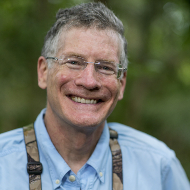Why teach evolution? Because it’s not just a topic of academic interest for pointy-headed scientists. It’s more than figuring out the history of life through time: how ancestral microbes evolved into complex organisms, how aquatic animals conquered the land, and how we arose from our primate ancestors. Those are, of course, fascinating and important topics.
Evolution in real time has real-world effects
We are witnessing evolution "going on around us, rapidly, and in real time," and the consequences are enormous, writes Jonathan Losos, Professor at Washington University in St. Louis and author of Improbable Destinies: Fate, Chance, and the Future of Evolution.
Evolution is going on around us, rapidly, and in real time.
But evolution is going on around us, rapidly, and in real time. People need to understand evolution to make sense of the world in which we live. When our antibiotics become useless because bacteria become resistant, that’s the result of evolution by natural selection. Ditto for when pests become resistant to pesticides and weeds to herbicides. They’re just adapting to the new selective pressures we’ve created, but in doing so, they cause vast human suffering and immense economic loss.
And now, as we are changing the world in so many ways, we wonder whether species can survive changing climate, acidified water, plastics in the oceans, and so many other environmental insults. Species have evolved adaptations to changes in the past, but can they do so now, in the face of the rapid changes we are producing? We can hope that natural selection will save the day.
On the other hand, in some situations, we would like evolution not to happen. There are great plans to use modern molecular biotechnology to render mosquitoes and other disease vectors sterile. But will they work, or will target species evolve their way around our efforts?
These are the reasons we need to teach evolution: because it is affecting the world around us.

